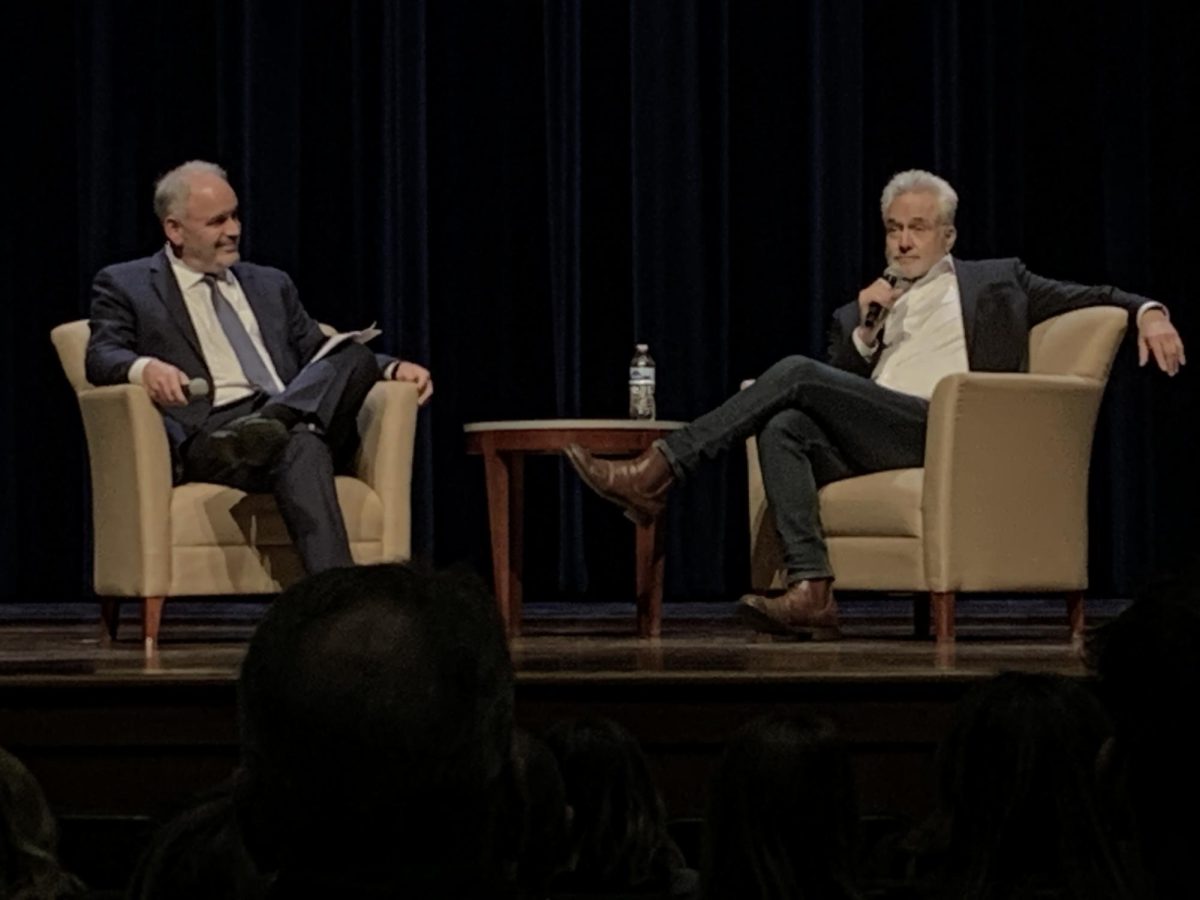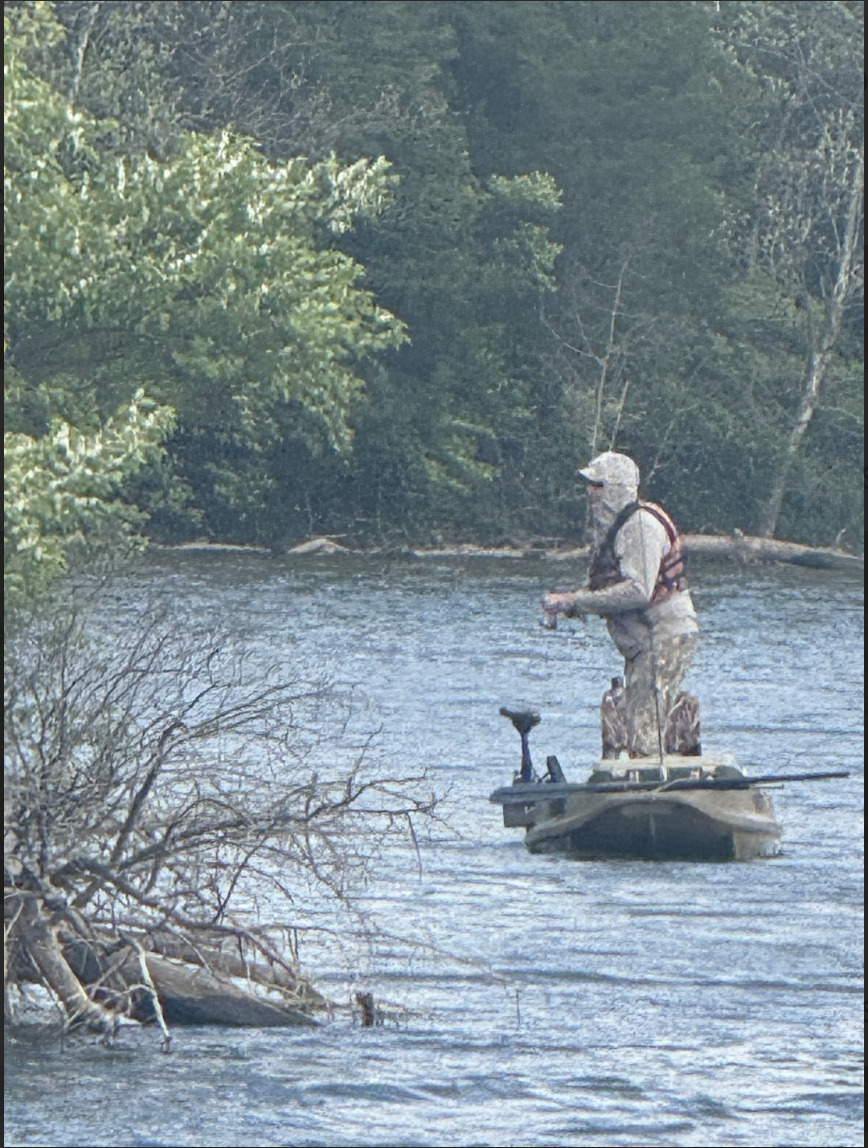A woman stepped up to the microphone on the right side of the stage at Hall Auditorium on the campus of Miami University.
“I’m literally shaking right now,” she said. “My mom and I have watched the show about ten times now. I’m so used to seeing you through a TV screen. I can’t believe you’re right in front of me.”
Bradley Whitford — you may know him better as Josh Lyman from the show “The West Wing” — sat on stage smiling. A one liner sends the audience — especially the moms in attendance — into stitches for the umpteenth time that night. When Whitford’s answer is done, the audience turns to the other side of the auditorium, where a large man is waiting to ask the next question.
“Lemon Lyman man,” he says, referring to a fictional Lyman-obsessed fan page from “The West Wing.” “I can’t believe you’re here!”
Like his character in the show, Whitford has earned something of a cult following through his career in Hollywood. Mainly, it is due to his role as Lyman, the president’s charismatic, sharp-witted, handsome and confident deputy chief of staff in the revered show “The West Wing,” which originally aired on NBC from 1999 to 2006.
Whitford, who grew up in Wisconsin, studied theater and English literature at Wesleyan University and later at the Juilliard School Theater Center. He has appeared in “The Handmaid’s Tale,” “Get Out,” “Transparent” and “Cabin in the Woods,” among other productions.
Since his role in “The West Wing,” Whitford has been active in the real life political scene as an advocate and activist supporting progressive causes and the Democratic party. He serves on advisory boards for the organizations “Let America Vote” and “Citizens’ Climate Lobby.”
Whitford was on campus at Miami on March 11 as a guest of Miami’s University Lecture Series.
He talked about what “The West Wing” meant to people. He said that if he had known that people would still be watching the show nearly 25 years after it originally aired, he would have been more self conscious during filming. He said he believes that the show comforts viewers because the characters were shown as conscientious, well intentioned people trying to enact meaningful change.
“The main difference between the show and real life is that [on the show], we had reasonable Republicans,” Whitford said at the public lecture.
According to Whitford, the renowned television writer Aaron Sorkin created the role of Josh Lyman with his friend Whitford in mind. Whitford auditioned for the role and greatly impressed Sorkin. But not everyone with a say in casting agreed.
“You get these humiliating assessments, like ‘he’s not funny enough, not sexy enough,’” Whitford said. “But Aaron fought for me.”
After a second audition, Sorkin called him on the phone and offered him the role of Sam Seaborn, which would eventually be filled by Rob Lowe. Whitford pleaded with Sorkin, saying he was much better suited to play Lyman. Eventually, Sorkin agreed.
When Lowe departed the show in season four, he was replaced by Joshua Malina, a prankster with “no perception of proportional response.”
“You get Josh with a hand buzzer, and he goes and picks your daughter up early from school,” Whitford said.
Whitford said his mentor was John Spencer, who played Leo McGarry, who died during the final season of “The West Wing.” When the two were filming the movie “Courtroom Thriller,” which Whitford described as his first “big break,” Spencer confided in Whitford that he had gotten out of rehab and never acted sober in his life. The role was a huge break for him, and he was terrified.
“And from then on he was kind of an older mentor for me,” Whitford said. “We bonded through this difficult experience.”
On the day Spencer died, some 25 years later, Whitford got a call as he was picking up his child from school that Spencer was in trouble. By the time he showed up to the hospital, Spencer was dead. Over the next six weeks, Whitford was a pallbearer for his mentor in real life and for his character on television.
Whitford said that there was talk about the show continuing past the seventh season. After Spencer’s death, those around the show realized “we didn’t really want to do it anymore.”







